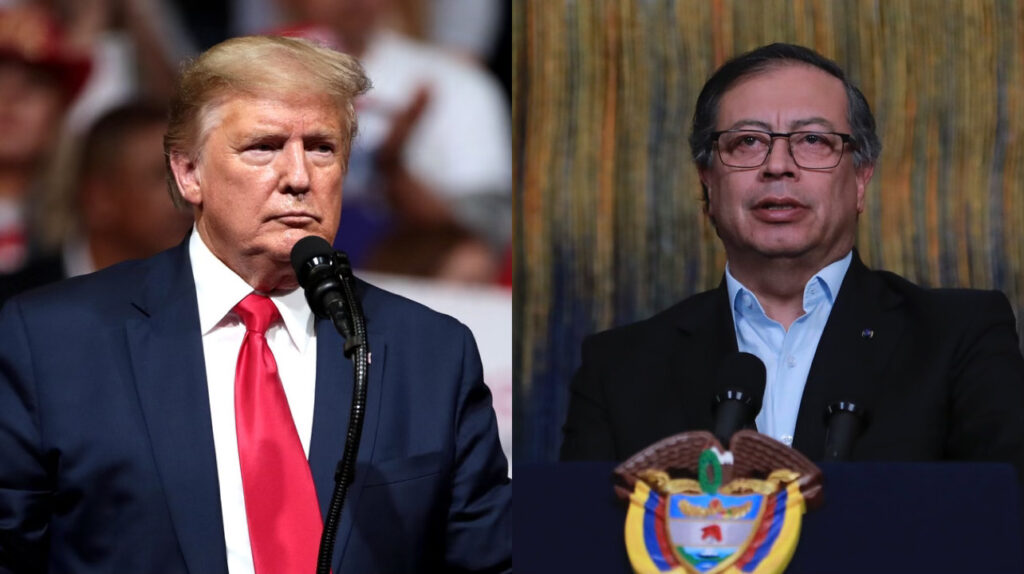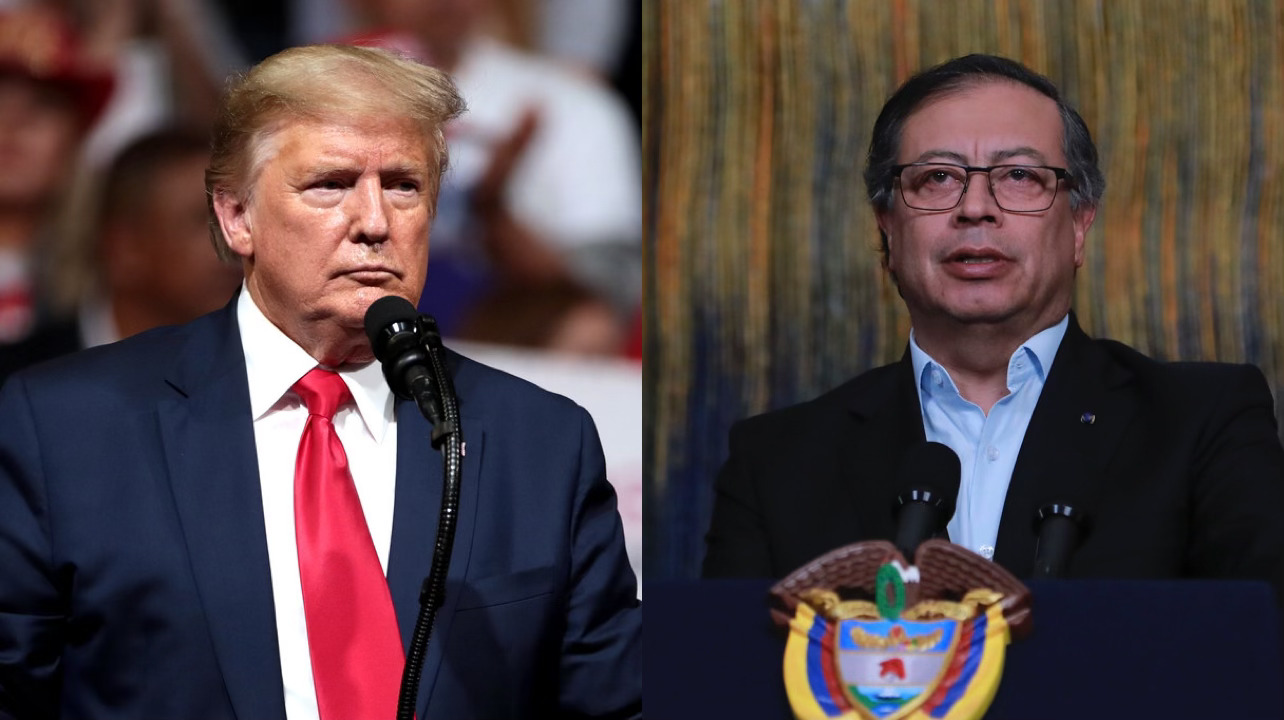
President Donald Trump and Gustavo Petro. Credit: flickr / Official photograph of the Presidency of Colombia / Gage Skidmore
United States President Donald Trump is weighing revoking Colombia’s status as a Major Non-NATO Ally, a move that would signal a sharp escalation in strained ties between President Donald Trump and Colombian President Gustavo Petro, local media reports say.
The possible revocation, which has not been announced formally, has set off alarm bells in diplomatic circles and would mark one of the sternest gestures the U.S. could use to register displeasure with Bogota, according to coverage in La Republica, Pulzo, and El Tiempo. Colombia was granted the designation more than three years ago during the administration of then-President Joe Biden and the government of Ivan Duque.
The Major Non-NATO Ally (MNNA) category is primarily a political credential indicating privileged security and defense cooperation with Washington. Created by Congress in 1987, the designation is held by just 21 countries, including Japan, Israel, South Korea, Morocco, and New Zealand, and in Latin America, only Argentina, Brazil, and Colombia have earned the recognition. The status can carry practical benefits for military purchases and joint programs.
Tensions between President Trump and Colombia’s government have seen a stark rise in recent months, could further escalate with the Major Non-NATO Ally status removal
Tensions between the two governments have risen in recent months, the reports say, including public clashes between Trump and Petro on social media that led to threats of tariffs, a partial suspension of U.S. financial and military assistance, and the inclusion of Petro and several relatives on a sanctions list referenced in the stories.
The Trump administration has argued that Colombia was not meeting expectations in the fight against narcotics, a rationale that underpinned the earlier decertification. Colombian news outlets cited Semana in reporting that the possible loss of MNNA status would be unprecedented for a Latin American ally and would be widely read as a blunt message of Washington’s distrust of President Petro’s policies.
U.S. State Department officials and advisers at the National Security Council, the reports said, have indicated the relationship could “get back on track” once Petro leaves office and a new president takes power next year.
The matter comes as the MNNA list itself shifted this week after the White House added Saudi Arabia, underscoring the political as well as strategic dimensions of the designation, the coverage noted.
A decision to remove the status would have both symbolic and concrete implications for defense cooperation and military procurement, diplomats warned, and would deepen a rupture in a relationship historically centered on security and counternarcotics collaboration.
